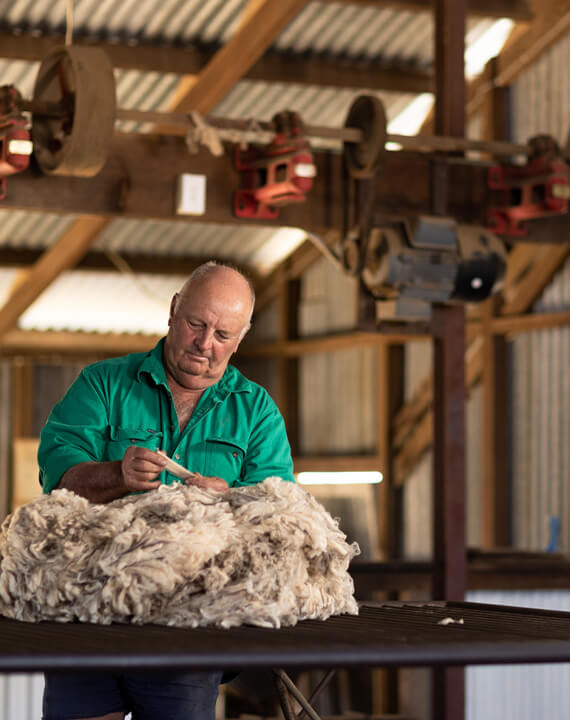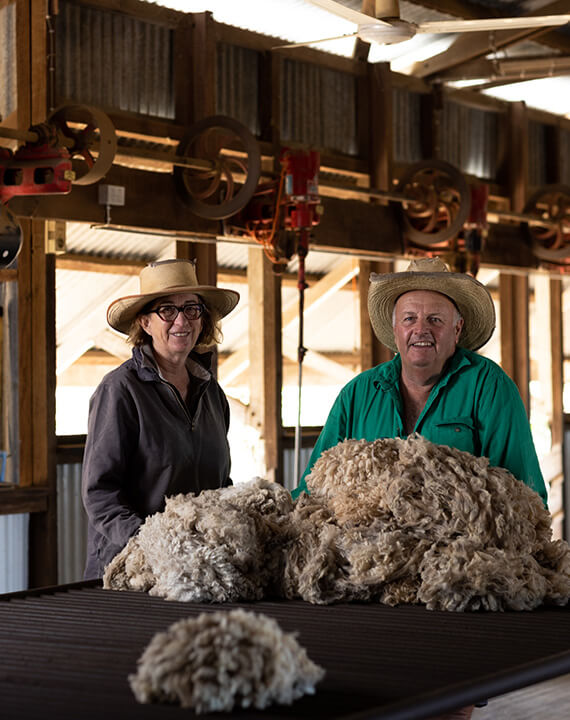Going beyond greasy: blackall wool handling facility

Australia has the potential to grow and re-establish prominence in the wool industry. The opportunities are situated right here in Central West Queensland.
The local agricultural sector punches above its weight – producing 5 per cent of the value of all of Queensland’s agricultural commodities.
Cluster fencing is reviving the local sheep flock – it has been growing at an estimated annual rate of 10 per cent in recent years.
The value of commodities from the local sheep flock – wool and sheep and lamb meat – is also rising, at an estimated annual rate of 5 per cent in recent years. This accounts for nearly one third of the statewide value of shorn wool and sheep and lamb meat.
Much of the value-adding processes down the supply chain for these growing commodities occurs offshore. The Blackall Wool Handling and Receival Facility is in the pipeline – performing scouring and carbonising, top making, and yarn spinning and dying. It is an opportunity to bring value-adding production back onshore, to the heart of Queensland’s wool industry.

The facility has strong community support and a strong business case. A feasibility study commissioned by the Blackall-Tambo Regional Council shows an internal rate of return of 10.8 per cent and marginal internal rates of return ranging from 4.8 per cent to 10.1 per cent (depending on the assumed discount rate).
Construction of the facility would contribute an estimated $32.4 million in output and $14.5 million to gross regional product. Construction would also generate an estimated 88 jobs (39 direct), paying a total of $7.6 million in wages and salaries ($3.8 million direct). During operations, the facility would generate $116.3 million in gross regional product per annum (including $35.6 million in direct impacts) 812 jobs (including 270 direct), paying a total of $44.1 million (16.9 million direct) in wages and salaries per annum.
The yarn from this facility would supply growing demand from both established and emerging markets. Following BREXIT there is potential for growth in demand for Australian yarn as Australian trade negotiations take place with both the UK and also the EU. Emerging-market countries (Vietnam, Indonesia and Bangladesh, for example) are experiencing rapid growth in their weaving and manufacturing supply chains – into which Australian producers can supply.
Going Beyond Greasy – summary of feasibility study. For more information, contact RAPAD.
Live stories
What’s on offer in the central west other than virtually no commute? The detail on even more great reasons to move this way.
Work stories
Welcome to the land of plenty of work. Whether you’re looking to advance your career or reinvent yourself the perfect opportunity is waiting Far Out.
 View all
View all